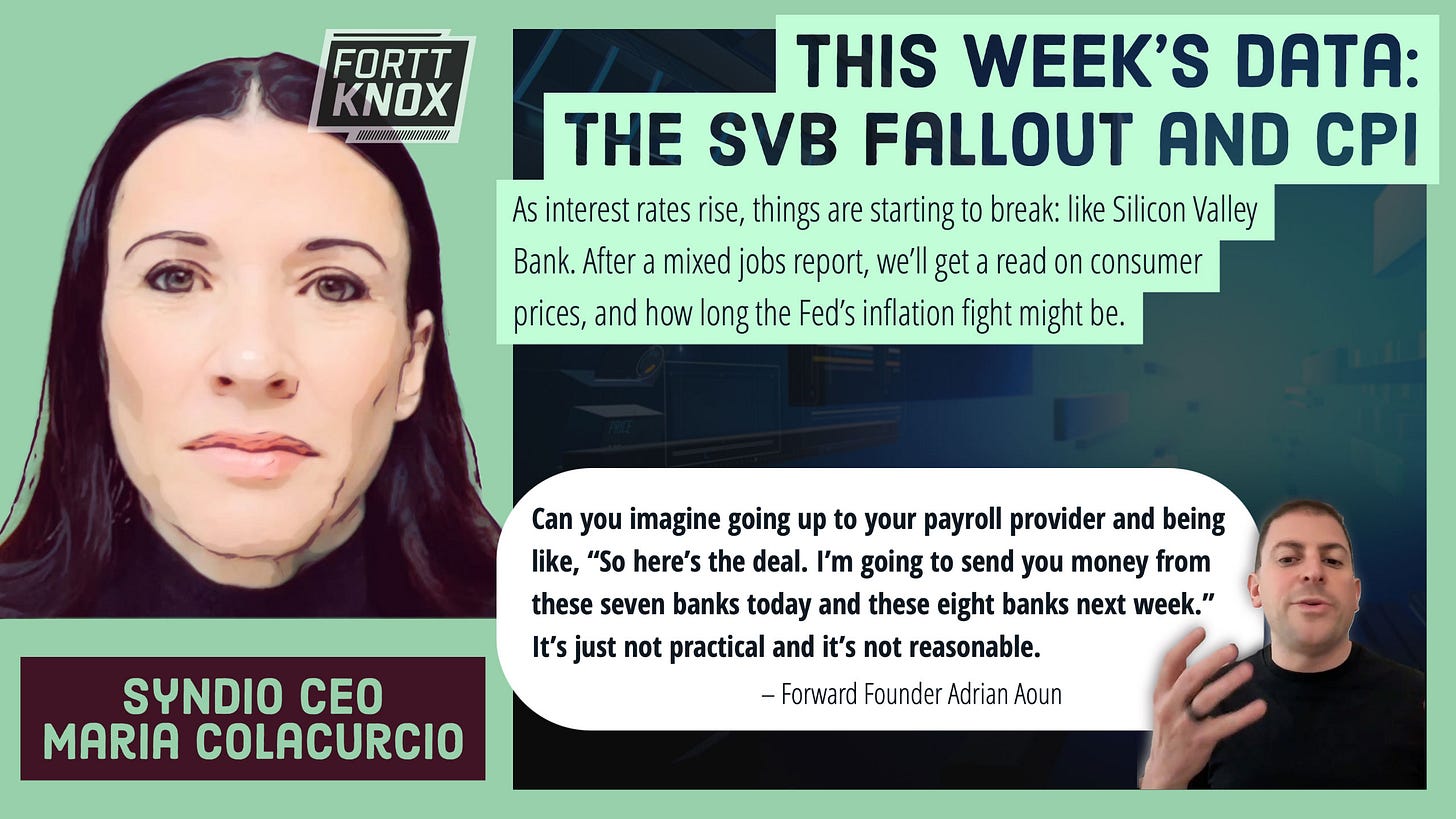Why the Silicon Valley Bank Collapse (Still) Matters for Our Money
Maria Colacurcio of Syndio, Adrian Aoun of Forward
The dumbest thing to come out of the collapse of Silicon Valley Bank is a horde of observers using it for political points or social media owns. Libertarian investors hated government on the way up, but want a bailout on the way down.
Maybe. So? I mean, that’s interesting if you spend too much time focused on libertarian investors and not enough on entrepreneurs.
If you do that, you might be fooled into thinking Silicon Valley is one big Shark Tank episode with four bros (and one woman, maybe) handing out money to wide-eyed inventors who then funnel it all into SVB. Of course, that’s an oversimplification.
Because of Fortt Knox, I happen to know a lot of entrepreneurs who have money in Silicon Valley Bank or very similar regionals. Some observations:
The entrepreneurs and their employees had the most to lose.
This proved we need a better system for insuring deposits.
Rising rates are breaking things, so rethink your own portfolio.
The entrepreneurs and their employees had the most to lose. There’s an argument out there that the federal government should not have stepped in and assured the depositors of Silicon Valley Bank that they would get their money back. Letting the bank fail would have been a lesson to everyone to pay closer attention to the risk management practices at their banks. SVB got too aggressive banking startups, and startups should have known better than to give it their money. The counterargument here is that SVB was fine until a pandemic-fueled liquidity surge led to a spike in deposits, and an inflation-fueled series of rate hikes exposed its over-exposure to long-dated bonds and shrinking deposits. If we decide it’s the individual depositor’s job to regulate banks, not the government’s, we’re left with a banking system we can’t trust.
This proved we need a better system for insuring deposits. The FDIC insures deposits up to $250,000 per account. Sounds like a lot, right? I had a good chat with longtime entrepreneur and Forward CEO Adrian Aoun on Sunday, and he explained why it’s not:
So just to give you kind of a ballpark, since we don't release our internal numbers, you should expect companies of our size roughly burning anywhere from $1 million to $10 million per month. And when you look at that 1-$10 million per month. … Let's just go ahead and ballpark it at maybe 5 million a month going to payroll or so.
Clearly, he argues, $250,000 isn’t going to help you much. What about the people who say, well then you should spread your deposits over multiple banks to stay insured?
Well, can you imagine going up to your payroll provider and being like, “So here's the deal. I'm going to send you money from these seven banks today and these eight banks next week.” It's it's just not practical and it's not reasonable. And so certainly it certainly would be beneficial for society to come up — whether it's government or the banking system — with an alternative way of protecting assets.
Something to think about.
Rising rates are breaking things, so rethink your own portfolio. This is the last and perhaps most important observation I’ve got here. At the most basic level, the SVB collapse happened because very smart people were unprepared for the rapid rise in interest rates. Are you? Have you rethought your approach to debt, spending and investing to account for the range of things that might happen in this volatile economy? You should. Wipe away all of your assumptions and think about whether your emergency fund is big enough, whether your spending is disciplined enough, whether your portfolio is balanced enough to weather an environment of sustained job loss and high interest rates. It might be hard to make changes to your finances now based on what might happen; but it’s a lot easier than making them later in reaction to a crisis.
Enjoy this newsletter? Share it.








